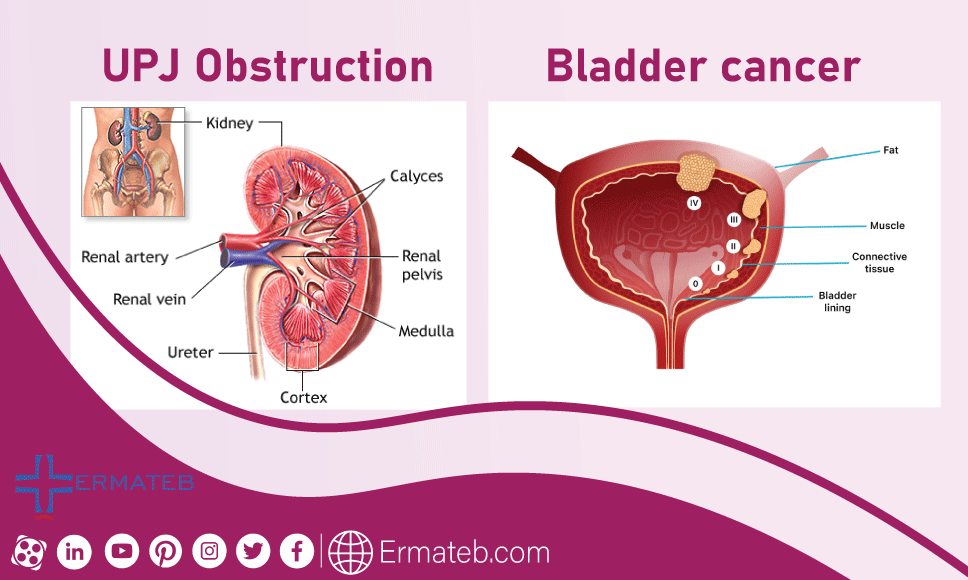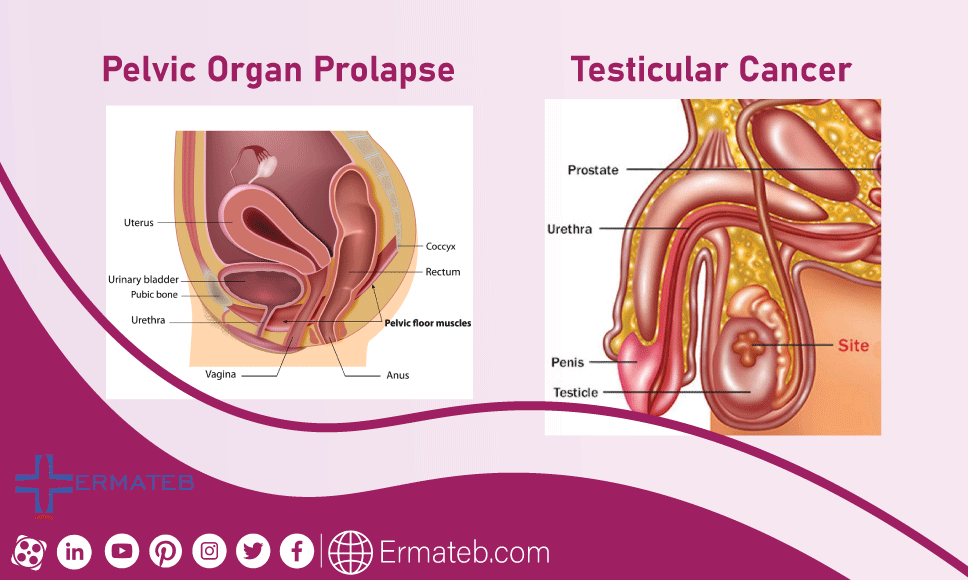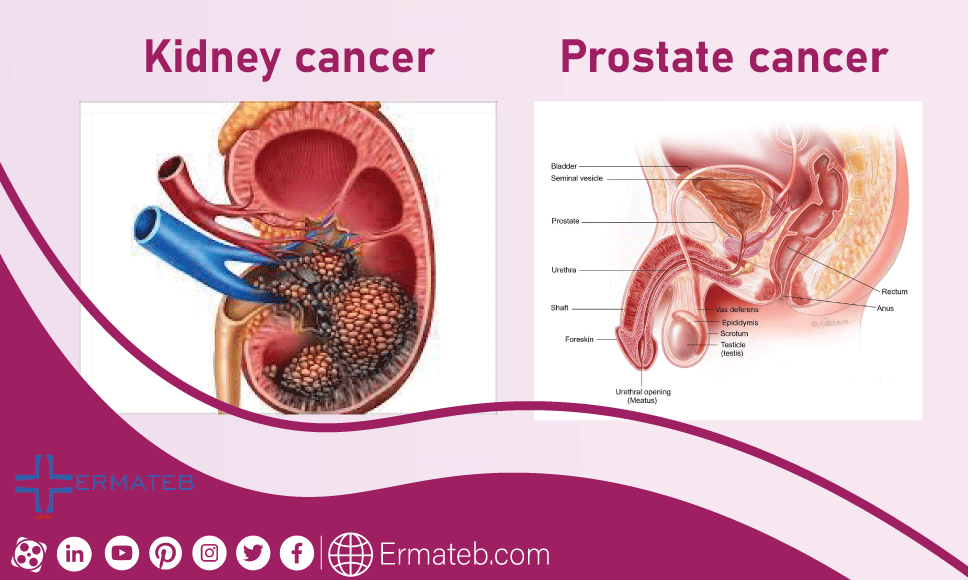
Urology is a branch of health care that cares ab6 diseases of the male and female urinary tract (kidneys, ureters, bladder and urethra). It is also about the male organs that are able to make babies (penis, testes, scrotum, prostate, etc.). Since diseases and complications in these parts of can happen to everyone, urologic health is important for human living.
It is also known as a surgical specialty which is connected to other majors like internal medicine, pediatrics and gynecology.
Diseases of the genitourinary tract have been recognized for thousands of years. The mummified body of a child discovered in Egypt back to at least 5000 years ago, was found with a large bladder stone.
Urology word comes from ancient Greek roots οὖρον ouron "urine" and -λογία logia "study of" (the study of urine)
Circumcision was probably the first surgery ever done on a regular basis and bladder stones were recognized by Hippocrates.
“Stonecutters”, or traveling lithotomists, practiced bladder stone removal throughout Europe in the 17th century. The diarist Samuel Pepys graphically written about the removal of his bladder stone by a lithotomist; many were not so lucky as he was. However, urology as a specialty in its own right was only instituted in 1890 with the appointment of Felix Guyon in Paris as the first Professor of Urology who compiled the basis of urology.
Like most of the medical specialties, urology has its own sub-specialties like :
• Pediatric Urology (children's urology)
• Urologic Oncology (urologic cancers)
• Renal (kidney) Transplant
• Male Infertility
• Calculi (urinary tract stones)
• Female Urology
• Neurourology (nervous system control of genitourinary organs)
During the first visit, the urologist will review all the medical history and symptoms of the patient and at the last physical examination of the genitourinary system. But an important question is about methods that help urologists to diagnose the patient's problem.

urologic problems
These are the most common diagnostic tools which they use :
Physical Exam
Depending on the patient's symptoms urologist will do some examinations like examining kidneys, ureters, bladder, penis, or testis.
The doctor inserts a lubricated gloved finger into the patient’s rectum to check the size and firmness of internal organs. Also, it's easy, can be a little painful.
Urine Tests
There are different types of urine tests that may be needed in different diagnoses.
• 24 — Hour Urine Tests (used to study if elements such as proteins or hormones are within the standard range)
• Urine Cultures (to see if there are any bacteria in a urine sample)
• Urinalysis (requires the patient to urinate into a sterile cup to check for bacteria, blood cells, and other substances)
 urologic problems
urologic problems
Ultrasound, X-Rays, and Other Imaging Methods:
Utilize mostly for a problem that is not always visible or noticeable to urologists. Fortunately, numerous imaging methods are used to help patients get a better glimpse of the problem. An ultrasound is an easy method to find out problems related to kidneys, bladder, testicles, and prostate gland, such as tumors, cysts, or stones. X-rays are also essential for a better internal look at the problems. There are various types of x-rays imaging; some include injecting dyes into the bloodstream while others may involve a special radiopaque liquid that the x-ray can highlight.
Testosterone Tests
Mostly used for evaluating male erectile dysfunction. To evaluate infertility, a series of additional blood tests are completed and compared.
If you want to know more about urology and its diseases you can read this article Most common Urology diseases
When is it necessary to visit urologists?
· Have Trouble With Bladder Control
· Have Difficulty or Pain While Urinating.
· There's Blood in Urine.
· Have To Urinate Frequently.
· Experiencing Erectile Dysfunction.
· Sex Drive Has Decreased.
· Noticeable Penile or Testicular Abnormalities.
· Have Pain in Lower Stomach or Groin Region.
Minimally invasive Urologic surgeries
These days minimally invasive surgeries are preferred much more than invasive ones. These procedures correct urological issues with much less trauma. These minimally invasive surgeries are mostly done laparoscopically (through small keyhole incisions), robotically (with the aid of a robot), or even through a single port.
Endoscopy is used commonly between minimally invasive urologic surgeries that allow surgeons to see internal organs and tissues with a flexible endoscope. This can be utilized for diagnosis and evaluation of kidneys (cystoscopy), bladder, and ureter. Using an endoscope doesn't need incisions, and it enters the body via natural openings like the anus and urethra.
A variety of urologic problems can be treated by using endoscopic and robotic surgeries such as:

urologic problems
Like all types of surgeries, minimally invasive surgeries have their risks, but it's essential to know that they decrease the risks. Possible risks of any surgeries include damage to organs or tissue, blood loss, pain, scarring, and reaction to anesthesia.
The benefits of these procedures are much more than invasive surgeries. Some of these benefits are:
Any of these problems can be very serious, so patients should be aware of their genitourinary health and conditions.
These organs have very sensitive role in infertility. Due to the reasons mentioned before, patients should care a lot about their genitourinary health.
The latest technologies and facilities for these kinds of procedures and having experienced specialists in this major who have the best ranks in the world makes Iran a trustworthy pole. Iran Urology services have been got the best degree in the Middle East from decades ago. Annually thousands of people from neighboring countries who endured urologic diseases come to Tehran and Shiraz to use Iranian Urology hospitals, clinics services, and talented experts.
Iran offers the best options for urologic care with lower prices versus other countries and patients can be sure that their surgery will be successful with peace of mind. ( based urologic surgeries costs about 15 times cheaper in Iran in comparison with European countries)
Ermateb is the first and the best choice of the most foreign patients who want to go through an appropriate and stress-free medical procedure in Iran.
Medical Tourism Ermateb professional team may provide patients the best health offers agreeable to what they need. We will arrange your medical tour (your Visa, booking your hotel, drive you to wherever you want and ...). We manage your wonderful trip and take care of you till the time you achieve your health completely. We hope to help you live without any pain.
Visit our Twitter:
Follow us on Instagram:
Instagram.com/ermateb.en
Contact us via:
Info@ermateb.com

